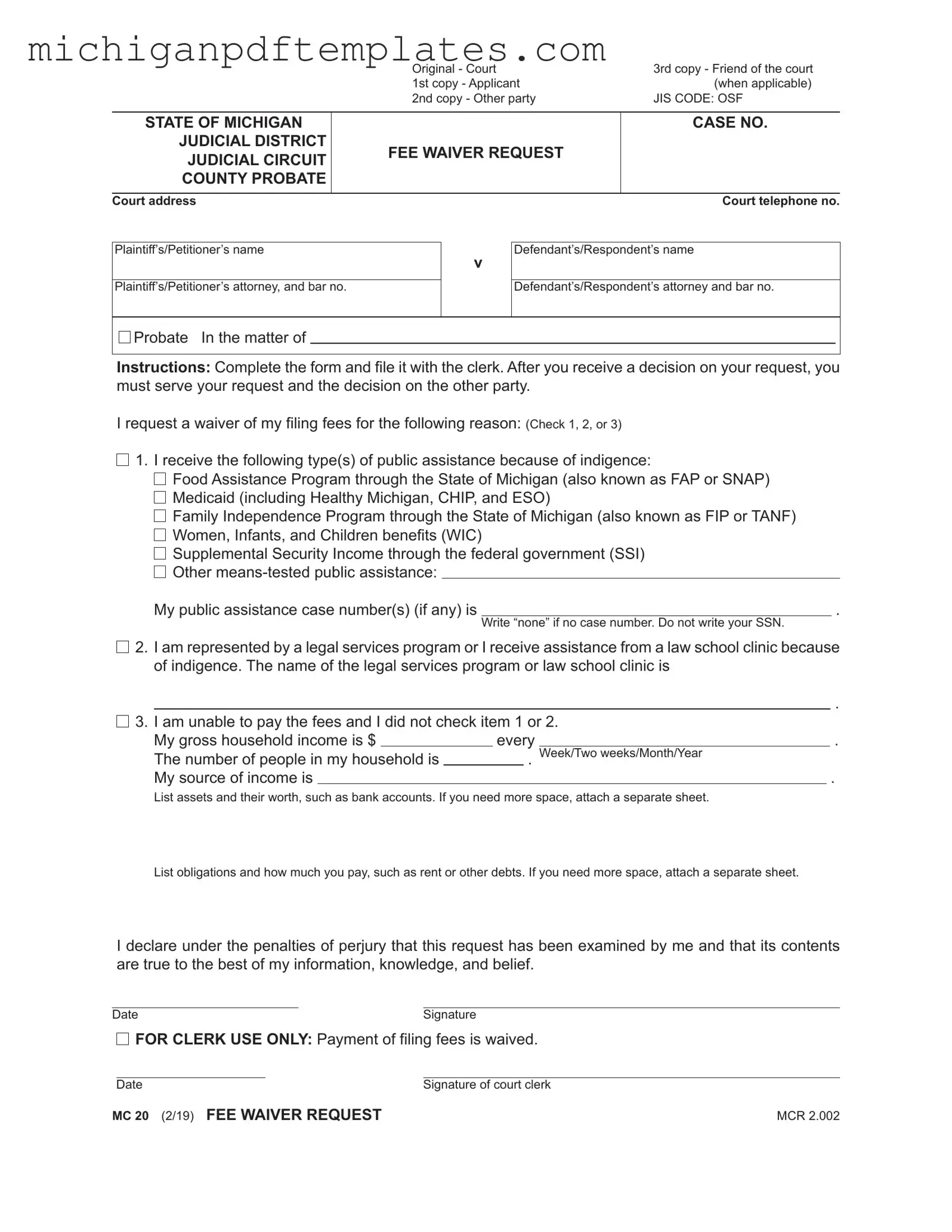Fill in Your Michigan Mc 20 Form
The Michigan MC 20 form is a Fee Waiver Request that allows individuals to seek relief from court filing fees due to financial hardship. This form is essential for those who may struggle to afford the costs associated with legal proceedings, ensuring access to justice for all. If you believe you qualify for a fee waiver, take the first step by filling out the form below.
Get Your Form Now

Fill in Your Michigan Mc 20 Form
Get Your Form Now

Get Your Form Now
or
▼ PDF Form
Finish this form quickly and move on
Fill in and complete Michigan Mc 20 online quickly.